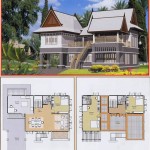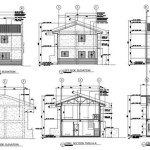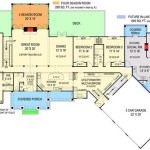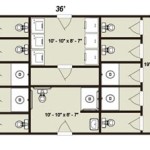Insulated Concrete Form House Plans: A Comprehensive Guide
Insulated concrete form (ICF) house plans offer a plethora of benefits for homeowners seeking energy efficiency, durability, and structural resilience. These innovative building systems combine the strength of concrete with the insulating properties of foam, resulting in exceptional thermal performance and other advantages. If you're considering building an ICF home, understanding the essential aspects of these house plans is crucial.
Key Components of ICF House Plans
ICF house plans rely on three primary components:
- ICF blocks: These interlocking blocks are made of expanded polystyrene (EPS) foam, with concrete poured into the hollow cavities.
- Concrete: Concrete provides the structural integrity of the walls, forming a continuous thermal envelope.
- Reinforcement: Rebar or wire mesh is embedded within the concrete to enhance its strength and resistance to bending.
Types of ICF House Plans
ICF house plans come in a wide array of styles and sizes, accommodating various architectural preferences and space requirements. From cozy bungalows to sprawling mansions, there's an ICF house plan to suit every taste and need.
Benefits of ICF House Plans
ICF house plans offer a host of advantages that make them a compelling choice for homeowners:
- Energy efficiency: ICF walls provide superior insulation, reducing heating and cooling costs significantly.
- Durability: Concrete and foam walls are highly resistant to rot, insects, and fire, ensuring the longevity of the home.
- Structural resilience: ICF walls are exceptionally strong and resistant to wind, seismic activity, and other natural disasters.
- Sound insulation: Foam insulation effectively absorbs sound, providing a quiet and peaceful indoor environment.
- Mold resistance: EPS foam is mold-resistant, preventing moisture accumulation and potential health hazards.
Design Considerations for ICF House Plans
When selecting an ICF house plan, several factors should be considered:
- Climate: Choose an ICF wall thickness that is appropriate for your climate zone to maximize energy efficiency.
- Lot orientation: Take advantage of natural daylight by incorporating windows and doors in optimal locations.
- Space planning: ICF walls provide flexibility in floor plan design, allowing for custom layouts and unique architectural features.
- Accessibility: Ensure that the ICF walls and other structural elements comply with accessibility standards for individuals with disabilities.
- Cost: ICF house plans may have a slightly higher initial cost than traditional construction methods, but the long-term savings on energy and maintenance offset this investment.
Conclusion
Insulated concrete form house plans offer a host of benefits that make them a smart choice for homeowners. By understanding the key components, types, and design considerations of ICF house plans, you can select a plan that meets your specific needs and aspirations. ICF homes provide exceptional energy efficiency, durability, structural resilience, and comfort, ensuring a safe, comfortable, and sustainable living environment for years to come.

Anatomy Of An Icf Plan Conversion Design Basics

Concrete House Plans That Provide Great Value And Protection

Insulated Concrete Form Icf Home Plans Design Basics

Icf House Plans Concrete Home The Designers

Fear No Design Icf Builder

Know Your House The Basics Of Insulated Concrete Form Construction

Icf Construction In Single Family Homes Modern House Plans By Mark Stewart

Pin On Insulated Concrete Form House Plans By Great Design

Cool Energy Efficient Concrete House Plans Houseplans Blog Com

Know Your House The Basics Of Insulated Concrete Form Construction








